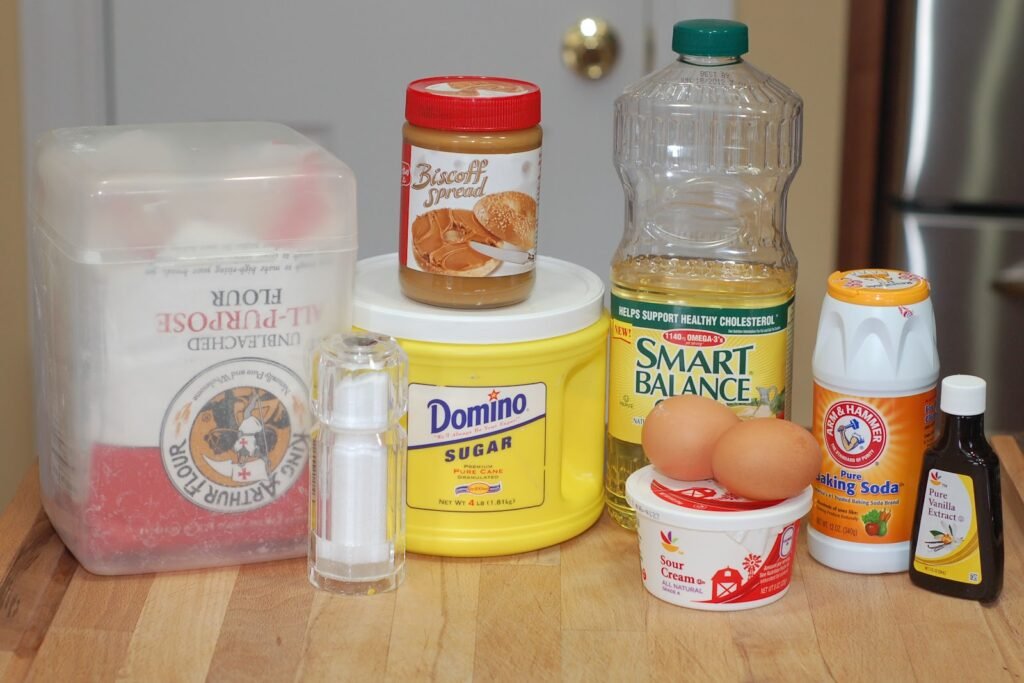Are Pineapples Acidic? Pineapple and Acid Reflux [Good or Bad]
Pineapple is a tropical delight enjoyed worldwide for its sweet and tangy flavor. But if you’re prone to acid reflux, you might be wondering, “Are pineapples acidic?”
The short answer is yes. But the relationship between pineapple and acid reflux is more nuanced than a simple yes or no.
This article dives deep into the acidity of pineapples, their potential effects on acid reflux, and how you can enjoy this tropical fruit responsibly.
What is Acid Reflux?
Acid reflux, also known as heartburn or gastroesophageal reflux (GER), occurs when stomach acid flows back up into the esophagus.
This backflow irritates the esophageal lining, causing a burning sensation in the chest. Frequent or severe acid reflux can lead to gastroesophageal reflux disease (GERD), a more serious condition.
The Acidity of Pineapples: The pH Factor
pH is a scale that measures how acidic or alkaline a substance is. The scale ranges from 0 to 14, with 0 being the most acidic, 7 being neutral, and 14 being the most alkaline. Pineapples typically have a pH between 3.3 and 3.6, making them quite acidic. For comparison:
| Food | Approximate pH |
| Lemon Juice | 2.0-2.4 |
| Pineapple | 3.3-3.6 |
| Tomatoes | 4.3-4.9 |
| Bananas | 4.5-5.2 |
| Water | 7.0 (Neutral) |
This acidity is primarily due to citric acid and other organic acids present in the fruit.
Pineapple and Acid Reflux: The Potential Problems
Because of their acidity, pineapples can potentially trigger or worsen acid reflux symptoms in some individuals. The high acid content can irritate the already inflamed esophageal lining.
Bromelain: A Double-Edged Sword
Pineapples contain bromelain, an enzyme with anti-inflammatory properties. Some studies suggest bromelain may actually help with certain digestive issues. However, in the context of acid reflux, the potential irritating effect of the fruit’s acidity might outweigh the benefits of bromelain for some.
Who is Most Likely to Experience Acid Reflux from Pineapple?
- Individuals with pre-existing GERD: Those with a history of frequent or severe acid reflux are more susceptible.
- Those with sensitive stomachs: Some people naturally have more sensitive digestive systems.
- Eating large quantities of pineapple: Consuming a large amount of pineapple at once can increase the likelihood of experiencing discomfort.
- Eating unripe pineapple: Unripe pineapples tend to be even more acidic.
Related to Read: Are Pineapple Juices Acidic
Tips for Enjoying Pineapple with Acid Reflux (If You Can)
If you love pineapple but are concerned about acid reflux, here are some tips:
- Eat pineapple in moderation: A small portion is less likely to cause problems than a large serving.
- Choose ripe pineapple: Ripe pineapples are generally less acidic than unripe ones.
- Eat pineapple with other foods: Combining pineapple with less acidic foods can help buffer its acidity.
- Avoid eating pineapple on an empty stomach: Eating it after a meal can help reduce its impact.
- Pay attention to your body: If you notice heartburn or other symptoms after eating pineapple, it’s best to avoid it or consume it very sparingly.
- Consider taking antacids: If you occasionally want to enjoy pineapple, taking an antacid beforehand may help prevent symptoms.
Author Tip: 7-Day Meal Plan For Gastritis
When to See a Doctor
If you experience frequent or severe acid reflux, regardless of pineapple consumption, it’s essential to consult a doctor. They can diagnose the underlying cause and recommend appropriate treatment.
FAQs
Is pineapple juice bad for acid reflux?
Yes, pineapple juice is also acidic and can have similar effects as eating the fruit itself.
Can pineapple help with digestion?
Bromelain in pineapple can aid in digestion, but this doesn’t negate the potential for acid reflux in susceptible individuals.
Are there any less acidic fruits I can eat instead?
Melons (cantaloupe, honeydew), bananas, and pears are generally less acidic.
Does cooking pineapple reduce its acidity?
Cooking can slightly reduce acidity, but it won’t eliminate it.
Conclusion
Pineapples are indeed acidic, and they can potentially trigger or worsen acid reflux in some people. However, by following the tips outlined in this article, many individuals can still enjoy this delicious fruit in moderation. If you have concerns about acid reflux, it’s always best to consult with a healthcare professional.
Better Than S’Mores Mini Cupcakes

I have been wanting to try Biscoff cupcakes for that past week. But I wanted to see what would happen if I tried to turn them into s’mores. The Biscoff is a bit sweeter than a graham cracker, but I though if I used a dark chocolate ganache to fill them, it might balance out the sweetness. What?? Me, make something less sweet?? Ask anyone who knows me and they would think something was wrong. But have no fear, sometimes it’s all worth it in the end. And these absolutely were. Topped with a marshmallow fluff frosting, these puppies came out better than expected, better than a s’mores!

Don’t mind my upside down flour bag. It had a hole in the bottom, so I had put it that way, otherwise that kitchen would look like a snowstorm had passed through.

| For the ganache filling |

filled cupcakes
At this point feel free to take any defect cupcake and pop it into your mouth. It is for quality control purposes only. Since it was late at night when I made the frosting, I forgot to take any pictures.
Of course before I went to bed I had to try one and gave one to my husband to try so I wouldn’t feel so guilty. Oh god, they were delicious. I am glad I made them bite size, the blend of tastes it just perfect. Unfortunately, that just means I will eat more.
Better Than S’Mores Mini Cupcakes
by The Sweet Chick
Prep Time: 20-30 minutes
Cook Time: 10-15 minutes
Keywords: bake dessert biscoff marshmallow fluff chocolate ganache cupcake
Ingredients (24 mini cupcakes)
For the Biscoff Cupcakes
- 1 cup all-purpose flour
- 1 cup granulated sugar
- 1/2 teaspoon kosher salt
- 1/2 teaspoon baking soda
- 1/2 cup canola oil
- 1/2 cup sour cream
- 1/2 cup Biscoff spread
- 2 large eggs
- 2 teaspoons pure vanilla extract
For the Chocolate Ganache Filling
- 12 ounces chocolate, chopped into small pieces (I used a 3.5oz bar of Lindt dark chocolate and about 3/4 of a 12 oz bag of semi-sweet chocolate chips)
- 1 cup heavy cream
For the Marshmallow Fluff Frosting
- 1/2 stick butter, softened
- 2 cups marshmallow fluff
- 2 cups powdered sugar
- 1 teaspoon vanilla
- 1 tablespoon Wilton meringue powder
- 2-3 tablespoons milk
Instructions
For the Biscoff Cupcakes
Preheat the oven to 350º F and fill muffin tin with cupcake liners.
Place flour, sugar, salt and baking soda into a large bowl, mix to combine. Set aside.
In a stand mixer or using a hand mixer, place oil, sour cream, Biscoff spread, eggs and vanilla into the bowl and mix on medium speed until well incorporated. Slowly add dry ingredients and mix thoroughly, about 30 seconds. Spoon batter into prepared mini cupcake liners about 3/4 full. Bake for 10-15 or until toothpick inserted in center comes out dry. Remove and let cool completely.
(For regular sized cupcakes, bake 18-22 minutes).
Recipe by healthyfoodforliving.com/recipes
For the Chocolate Ganache Filling
Place chocolate pieces in a large bowl.
Heat heavy cream on medium high until it comes to a boil. Remove from heat and immediately pour cream over chocolate and stir until completely mixed and glossy.
Allow ganache to cool. The longer you allow the ganache to cool, the thicker it will set. You can place it in the fridge to cool faster. The ganache needs to be completely cooled before piping it in the cupcakes.
While the ganache is cooling cut a hole in the middle of each cupcake and scoop out the center (not all the way to the bottom). I used a vegetable peeler, but you can also try a apple corer.
With a frosting piping bag or a plastic freezer bag with tip cut off, pipe the ganache filling into each cupcake and place back in the fridge.
Recipe by https://www.healthyfoodforliving.com/recipes/
For the Marshmallow Fluff Frosting
In a stand up mixer or using a hand mixer, blend butter and marshmallow fluff until smooth.
Sift in confectioners’ sugar and meringue powder and beat on low speed.
Add vanilla and milk and increase speed to high. Beat for 1 minute.
Using a frosting piping bag and your favorite tip, frost each cupcake and place back in fridge to set.
Recipe by The Sweet Chick
